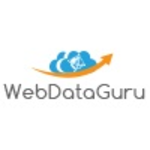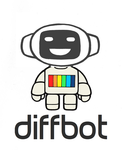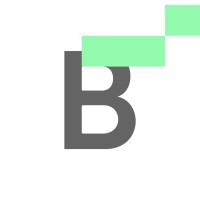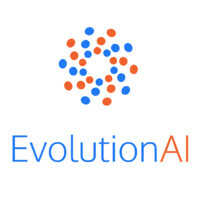Description

Botster
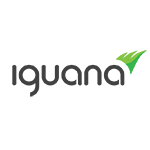
Iguana
Comprehensive Overview: Botster vs Iguana
As of my last update, Botster, Iguana, and WebDataGuru are all involved in data extraction or web scraping, which is the process of collecting publicly available data from the internet for various uses. However, each has unique features and a specific focus, catering to different market segments.
a) Primary Functions and Target Markets
Botster:
- Primary Functions: Botster specializes in automating tasks on the web, particularly focusing on web scraping, data extraction, and workflow automation. It provides users with predefined scraping bots or custom solutions for extracting data.
- Target Markets: Botster targets businesses of various sizes looking to extract and analyze data from the web efficiently. It is particularly appealing to e-commerce, market research, and digital marketing sectors, where data-driven strategies are crucial.
Iguana:
- Primary Functions: Iguana focuses on web scraping services and data analytics. It offers tools for extracting web data, converting unstructured data into structured data formats, and then analyzing that data to generate insights.
- Target Markets: Iguana appeals to businesses in finance, healthcare, and retail sectors. Its tools are geared toward companies needing comprehensive data analytics from web data to inform strategic decisions.
WebDataGuru:
- Primary Functions: WebDataGuru provides products and services for data extraction, price monitoring, and data as a service (DaaS). It helps users gather competitive pricing data and other market intelligence from online sources.
- Target Markets: This product targets e-commerce companies, market research firms, pricing analysts, and businesses in need of competitor intelligence and pricing strategies.
b) Market Share and User Base
Determining the exact market share and user base for these products can be challenging without specific data. However, general trends can be inferred based on industry reports, reviews, and usage patterns.
- Botster: Likely has a lower market share compared to larger, more established platforms in the web scraping field, as it focuses on providing automated solutions for specific tasks rather than being a comprehensive data platform.
- Iguana: Its focus on data analytics alongside web scraping could provide it with a steady market share among companies that require both data extraction and subsequent analysis. It may have a smaller user base due to its sector-focused approach.
- WebDataGuru: Given its niche in price monitoring and competitive pricing intelligence, it likely enjoys a strong foothold within e-commerce and retail industries, though its user base might be more industry-specific.
c) Key Differentiating Factors
-
Botster:
- Ease of Use: Offers a straightforward interface with predefined bots for users who are less technically inclined.
- Customization: While offering standard solutions, users can request custom bots for specific needs, offering flexibility.
-
Iguana:
- Data Analytics Integration: Differentiates itself by not only providing scraping services but also integrated analytics to transform data into actionable insights.
- Industry Focus: Targets particular sectors like finance and healthcare with specific features designed for their needs.
-
WebDataGuru:
- Pricing Intelligence: Specializes in competitive pricing analysis, which is crucial for e-commerce and retail markets aiming to optimize pricing strategies.
- Data-as-a-Service (DaaS): Offers a broader idea of DaaS, beyond just extracting data, by providing tailored insights as a service, suited for businesses that want comprehensive market overview.
In summary, while Botster, Iguana, and WebDataGuru share similarities in their core function of data extraction, they differentiate themselves through varying features, target markets, and integrated services. Botster appeals through ease of use and automation, Iguana through analytics integration, and WebDataGuru through specialized pricing intelligence.
Contact Info

Year founded :
2019
Not Available
Not Available
United States
http://www.linkedin.com/company/botster

Year founded :
1985
Not Available
Not Available
Belgium
Not Available
Feature Similarity Breakdown: Botster, Iguana
To provide a detailed comparison of Botster, Iguana, and WebDataGuru, particularly in terms of core features, user interface (UI), and unique features, let's break down each component as requested.
a) Core Features in Common
-
Web Data Extraction: All three tools have the core capability to scrape data from websites, which is their primary function. They aim to provide users with structured and easy-to-analyze data.
-
Automated Data Processing: These products often include automation features for scheduling and running data extraction tasks without manual intervention.
-
Data Export Options: Support for exporting data in multiple formats such as CSV, JSON, and Excel is common across these tools, allowing users to handle data in a way that integrates with their workflow.
-
APIs for Integration: All of these services offer APIs that enable users to integrate the data collected directly into their own applications or systems.
-
Customizable Extraction Rules: They offer users the ability to customize the extraction logic according to their specific needs, which includes handling dynamic content like JavaScript-driven sites.
b) User Interface Comparison
-
Botster: Known for its user-friendly interface which is designed to be intuitive for users at all expertise levels. The dashboard typically presents data scraping tasks and results in a clear, organized manner, often with drag-and-drop functionalities.
-
Iguana: Offers a clean and efficient interface, though it may not be as visually polished as some competitors. It focuses more on functionality over form, featuring straightforward task creation and execution processes, which can appeal to more tech-savvy users.
-
WebDataGuru: Provides a comprehensive UI that caters to professional and enterprise-level needs, with extensive options for customization and data management. The interface is robust, capable of handling complex and large-scale data extraction tasks, but might have a steeper learning curve for new users.
c) Unique Features
-
Botster: One unique aspect of Botster is its large library of pre-built scraping bots, which users can deploy quickly without needing to configure complex rules. This can save time and make data harvesting more accessible to non-technical users.
-
Iguana: Iguana sets itself apart with its advanced handling of difficult-to-scrape websites, including those with heavy JavaScript usage. It often emphasizes secure and ethical scraping practices, placing a focus on maintaining compliance with site terms of service.
-
WebDataGuru: It distinguishes itself through its scalable architecture and ability to handle high-volume enterprise-level data extraction. Additionally, WebDataGuru offers advanced analytics features which allow users to not only collect data but also gain insights through integrated analysis tools.
These points provide a general comparison for users considering which tool might best suit their needs, focusing on shared features, user interface distinctions, and special features that differentiate each product.
Features

Customizable Chatbots
Analytics and Reporting
User-Friendly Interface
Integration with Tools
Automation Features
Security and Reliability
Chat Automation

Not Available
Best Fit Use Cases: Botster, Iguana
When considering the best use cases for Botster, Iguana, and WebDataGuru, it's important to understand the unique strengths and applications each tool offers. Here’s a breakdown:
a) Botster
Best Fit for:
- Small to Medium Businesses (SMBs): Botster is ideal for small businesses that require custom bots for web scraping, data collection, or process automation without hefty upfront investments.
- E-commerce Companies: Businesses that need to track competitor prices, monitor product availability, or gather customer feedback from various channels can benefit significantly from Botster.
- Startups and Tech Firms: Startups needing to automate repetitive tasks and campaigns can use Botster to enhance efficiency without large-scale infrastructure.
Specific Projects:
- Automated data extraction for research purposes.
- Social media monitoring and direct data collection.
- Customized web scraping tasks based on particular business needs.
b) Iguana
Preferred Scenarios:
- Large Enterprises and Corporations: Iguana is suited for businesses that need robust, scalable data extraction and integration solutions.
- Financial Institutions: Particularly useful for investment firms that require up-to-date financial data and trends analyses.
- Market Research Firms: Agencies that need comprehensive and real-time market data to derive insights and support strategic decisions.
Project Examples:
- Complex data aggregation from multiple sources for business intelligence.
- Real-time monitoring of stock exchanges or financial markets.
- Comprehensive competitor analysis requiring integration from diverse data sources.
c) WebDataGuru
Consideration Scenarios:
- Retail and E-commerce: Best for businesses needing large-scale price comparison and dynamic pricing solutions.
- Consumer Insights and Analytics Firms: When a business requires in-depth data analytics and real-time extraction, WebDataGuru provides sophisticated solutions.
- Customized Data Needs: Companies requiring tailored data extraction solutions and focused project support.
Use Cases:
- Price optimization and competitor price monitoring.
- Collecting extensive datasets for machine learning models.
- Data extraction services tailored to specific requirements, such as real estate listings, travel search, etc.
d) Catered Industry Verticals or Company Sizes
-
Botster is more versatile for smaller companies, tech startups, and e-commerce platforms looking for cost-effective, scalable solutions that can grow with them. It provides the flexibility to craft personalized solutions without heavy IT setups.
-
Iguana serves large enterprises, with the focus being on secure, scalable, and compliant data solutions. Given its capacity to handle large datasets efficiently, it's favored by industries that demand precision and immediacy, like finance and deep market research.
-
WebDataGuru shines in industries requiring intense competition tracking, like retail and consumer goods. Its ability to furnish customized solutions makes it attractive to businesses with distinct data needs, addressing specific challenges in sectors like tourism, real estate, or broader analytics demands.
These tools are designed with varying data acquisition needs and infrastructural capabilities in mind, making them fit priorities ranging from startup-level agility to enterprise-scale robustness. Each targets different aspects of data extraction, ensuring businesses can choose based on size, industry, and specific data requirements.
Pricing

Pricing Not Available

Pricing Not Available
Metrics History
Metrics History
Comparing undefined across companies
Conclusion & Final Verdict: Botster vs Iguana
To determine which product offers the best overall value between Botster, Iguana, and WebDataGuru, it's important to weigh their features, performance, customer support, pricing, and user satisfaction. Here's an analysis for each product:
Conclusion and Final Verdict
a) Best Overall Value
- Botster generally stands out for its user-friendly interface and robust support, making it ideal for businesses prioritizing ease of use and reliable assistance.
- Iguana is known for its flexibility and integration capabilities, which are beneficial for teams requiring customizable solutions.
- WebDataGuru excels in data accuracy and extensive data processing features, making it a strong choice for companies needing precision and comprehensive data handling.
Considering these factors, WebDataGuru might offer the best overall value for organizations that need sophisticated data accuracy and processing capabilities. However, businesses prioritizing ease of use and strong customer support might find Botster more valuable, while those needing customization may lean towards Iguana.
b) Pros and Cons
Botster
- Pros:
- User-friendly interface
- Strong customer support
- Reliable performance
- Cons:
- May lack advanced customization features
- Limited scalability for extremely large data sets
Iguana
- Pros:
- Flexible and customizable
- Efficient integration with third-party tools
- Supports complex workflows
- Cons:
- Can be challenging for beginners
- Might require higher technical knowledge for setup
WebDataGuru
- Pros:
- High data accuracy
- Extensive data processing and analytical features
- Excellent for large-scale data operations
- Cons:
- Steeper learning curve
- Higher cost compared to others
c) Specific Recommendations
-
For Beginners or Small Businesses: Botster is recommended due to its ease of use and reliable support, allowing smaller teams to get up and running quickly without deep technical expertise.
-
For Customization Needs: If your business requires a solution that can be tailored to specific workflows and integrates well with existing tools, Iguana offers the flexibility needed.
-
For Data-Centric Organizations: For businesses where data accuracy and extensive processing are critical, WebDataGuru offers the comprehensive features required to manage and analyze large datasets effectively.
Ultimately, the choice should align with your specific business needs, expertise, and scalability requirements. Ensure you assess each platform's features in the context of your objectives and operational capacity before making a decision.
Add to compare
Add similar companies

